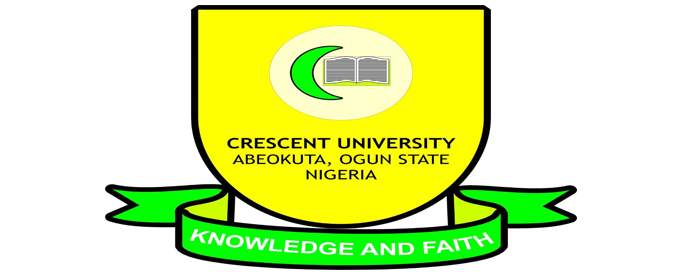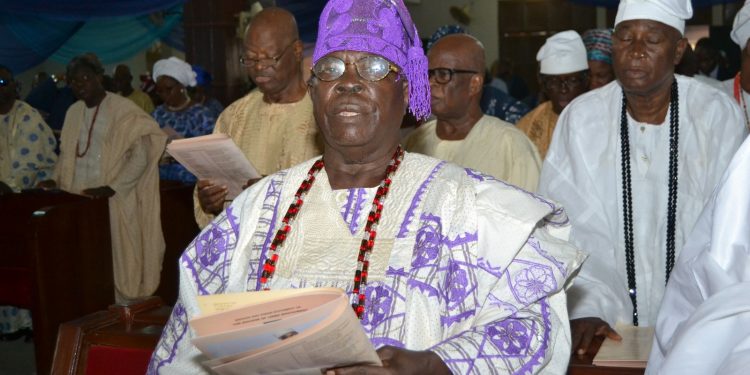By Bukola Adeyinka
In order to achieve peace for sustainable development in Ogun State. The Alaye of Odogbolu, Oba Adedeji, Onagoruwa have opined that it is the collective responsibility of Monarchs to promote peace by ensuring that culture and traditions must be put into practice in the nooks and crannies of our community and the country as a whole.
Speaking in this exclusive interview with Bukola Adeyinka, the monarch however reinstated his commitment to promote social and economic development by ensuring that the Yoruba culture and heritage does not go into exile.
Question: Sir, What is the Advent of monarchy in Nigeria, who was the first, (1st) to be crowned king in Nigeria?
Answer: Oramiyan was the first Oba to my own knowledge, he then chose his son Eweka to be the first Oba of Benin. Eweka was the first in a long line of Obas, who reached the peak of their power in the 1500s. This brass figure is believed to be prince Oramiyan, before
Nigeria became an independent republic in the 1960s, monarchs ruled over hundreds of ethnic groups across the country. Though they no longer hold constitutional power, these monarchs’ heirs still play a vital role in the nation’s cultural landscape, often aiding in local conflict resolution.
Question: Talking about culture and heritage, what is the importance of culture and how can citizens benefit from it?
Answer: Cultural experiences are opportunities for leisure, entertainment, learning, and sharing experiences with others.
From museums to theatres to dance studios to public libraries, culture brings people together, Ojude Oba for Example is an annual festival, Ojude Oba is celebrated amidst pomp and pageantry.
It attracts all Ijebus both home and abroad. International tourists do come to witness the colorful festival that entails booming of guns and horse riding by the Baloguns and Olorogu, we come together to merry, make new friends, business partners and associates it even boosts the economy of the State.
So participation in culture helps develop thinking skills, builds self-esteem, and improves resilience, all of which enhance education outcomes.
For example, students from low-income families who take part in arts activities at school are three times more likely to get a degree than those who do not. In the US, schools that integrate arts across the curriculum have shown consistently higher average reading and mathematics scores compared with similar schools that do not.
Many jurisdictions make strong linkages between culture and literacy and enhanced learning outcomes, in both public education and in the development of valuable workforce skills.
Cultural heritage broadens opportunities for education and lifelong learning, including a better understanding of history.
As trusted community hubs and centres of knowledge and information, public libraries play an important role in expanding education opportunities and literacy, overcoming the digital divide, supporting lifelong learning, and preparing people for work in the knowledge economy.
Participation in library activities has been shown to improve literacy and increase cognitive abilities to mention few.
Traditions represent a critical piece of our culture. They help form the structure and foundation of our families and our society.
They remind us that we are part of a history that defines our past, shapes who we are today and who we are likely to become. Once we ignore the meaning of our traditions, we’re in danger of damaging the underpinning of our identity.
As leaders, role models, and parents, we must strive to utilize every opportunity available to us to reinforce the values and beliefs that we hold dear.
The alternative to action is taking these values for granted. The result is that our beliefs will get so diluted, over time, that our way of life will become foreign to us. It’s like good health.
You may take it for granted until you lose it. If we disregard our values, we’ll open our eyes one day and won’t be able to recognize “our world” anymore.
The values that support the backbone of our country, our family, and our faith will have drifted for so long that the fabric of our society will be torn.
Culture is a strong part of people’s lives. It influences their views, their values, their humor, their hopes, their loyalties, and their worries and fears.
So when you are working with people and building relationships with them, it helps to have some perspective and understanding of their cultures.
Question: What are the helpful tips to start building a diverse community?
Answer: In order for people to commit to working on diversity, every person needs to feel that they will be included and important.
Each person needs to feel welcomed in the effort to create a diverse community.
And each person needs to know that their culture is important to others Although every person is unique, some of us have been mistreated or oppressed because we are a member of a particular group.
If we ignore these present-day or historical differences, we may fail to understand the needs of those individuals. Often people are afraid that recognizing differences will divide people from each other.
However, learning about cultural differences can actually bring people closer together, because it can reveal important parts of each other’s lives.
It can show us how much we have in common as human beings.
In working to combat racism and other forms of oppression many people become discouraged when they are unable to create a diverse group.
Starting by recognizing differences in religion, sexual orientation, socioeconomics, parenting, and class backgrounds will help create a climate that welcomes differences; it will also lay the groundwork for becoming more inclusive. talking about what diversity is, why it is important, how to begin envisioning our ideal diverse community, and how to set up an environment that fosters diversity.
This is only the beginning.
In working towards your diverse organization or community there is much more to do.
In the next sections we will talk about how to become aware of your own culture, build relationships with from different cultures, become allies to people discriminated against, overcome internalized oppression, build multicultural organizations and coalitions, and other topics as well.
Each of us can build the kinds of communities we dream of. In our families, organizations, institutions, and neighborhoods, we can insist that we won’t remain isolated from those who are different from ourselves.
We can transform our neighborhoods, institutions, and governments into equitable, non-oppressive, and diverse communities.
Question: with the current insecurity issue we are having in Nigeria presently, the Yoruba’s and Igbos are clamouring for independence, the both want to go their separate ways, Sir, with the help of culture, what is the way out? Do u think it is the absence of culture and tradition?
Answer: Well! Ethnic tensions, religious differences, unemployment and numerous social and political grievances are all fuelling the unrests in Nigeria and contributing to flashpoints for violence and creating insecurity in the country, “Our recent experience where the attempt to confront armed banditry headlong in the North resulted in their incursion into the South West and other regions that were erroneously perceived to be immune from the insecurity challenge is proof that each region has to be adequately policed for the region to know peace.”
We need collective and concerted efforts to deliver the security that “we desire as a nation and as a people.”
“Our recent experience in which insecurity has challenged education, peace, economy and other spheres of life has laid credence to Abraham Maslow’s emplacement of security as one of the foremost in the hierarchy of needs.
As a people, we must realise that it is only in a safe and secure environment that optimal local commercial activities, culture, norms and values can take place; foreign investors can be attracted; goods and services can be provided; infrastructure can be built and maintained; public service can be delivered, and social and political activities can take place peacefully.
Therefore, the quest for a sustainable peaceful society must be prioritised as the collective responsibility of all citizens.
Question: How can we maintain peace in the society, when our Obas have all dabbled into politics?
Answer: The recent insecurity plaguing the nation has created mistrust between the citizens, the government and the monarchs.
But, we must continue our rapport, continue on our relationship with the government in order to ensure peace, we will build on this relationship to make Nigeria a greater country.
We will build on this relationship to bring peace and harmony to the country. I believe that Nigeria will be greater in unity and peace and we all must ensure that.
We will also build on this relationship to support the federal government in its policies to interact and relate with all other Africa countries in the continent “Nigeria must be great again”.
554 total views, 1 views today





